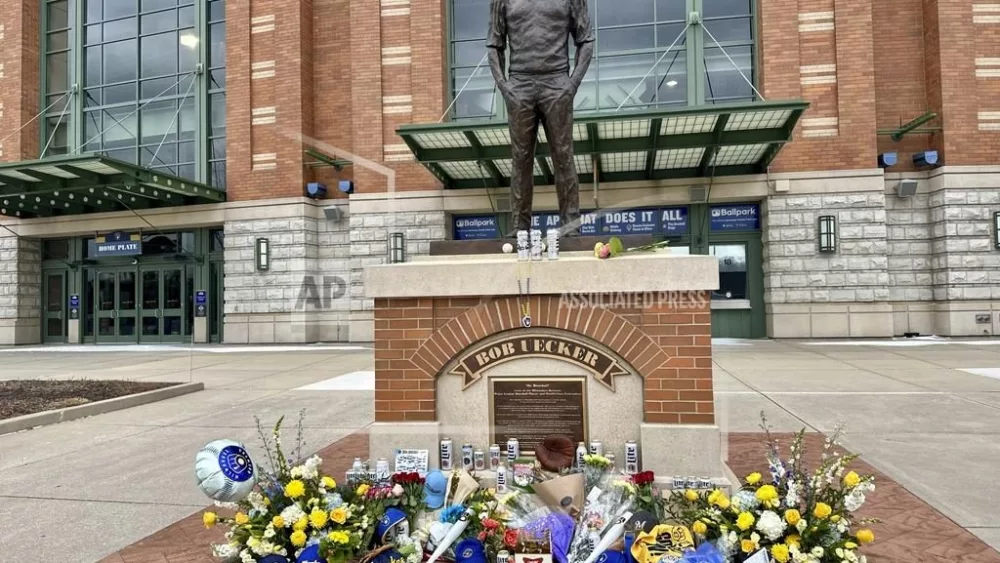
MADISON, Wis. – Training exercises are not a new concept for agencies across Wisconsin, but a recent four-week long exercise was the first of its kind in the nation to focus solely on the disaster recovery process. “Most of our drills and exercises typically focus on preparing us to respond quickly when a disaster happens,” said Greg Engle, Wisconsin Emergency Management administrator. “The impacts of a disaster can affect communities for months or even years as they recover, and this exercise helps us prepare to assist in the recovery just as we prepare to respond.” Engle came up with the concept for the exercise, called Bright Horizon, in 2022. Planning was led by Wisconsin Emergency Management Northwest Region Director James Williams and Melissa Waller, lead contract support for Pre-Emergency Planning LLC. “We never had a longer exercise that focuses on the different phases of the recovery process – short-term, mid-term, and long-term,” said Engle. “I wanted to have as many partnerships involved in the exercise including WEM, counties, volunteer agencies, non-governmental agencies, and the Wisconsin Recovery Task Force.” “The whole purpose of this exercise is to examine the capabilities of both the State, and local jurisdictions when it comes to their recovery processes and plans,” said Williams. “This exercise has taken place in five different regions and involved people with varying degrees of experience to give us a more in-depth look at how recovery needs may differ across the state.” Over the course of four weeks in August and September 2024, more than 250 participants focused on recovery efforts after a simulated flooding scenario. Exercise play would occur for a few hours during two different days of the week. This would occur between multiple state and county agencies, including the Wisconsin Recovery Task Force, which coordinates state recovery efforts and pre-disaster recovery planning. The exercise transitioned from the beginning of recovery operations through demobilization, a process that went from days after the incident to months or years. “We wanted a scenario that would stress the system so it would go beyond what could be controlled at the local level,” said Waller. “We developed injects, which are situations based on real-world experiences, to test plans, policies, or procedures that each of the players may have to learn what worked well and isn’t working well.” Jack Workman has been Jackson County’s emergency management director for just under three years. He volunteered to participate in Bright Horizon to enhance his knowledge on the recovery process. “When I volunteered to be a part of this, I didn’t know how close the injects simulated a true recovery response, so it was a little stressful for me, personally,” said Workman. “I wanted to participate so we can work through our processes and improve our recovery plans.” Jackson County was one of five counties that volunteered to participate in Bright Horizon. The other counties included Calumet, Marathon, Racine and Vernon. The exercise began with counties transitioning from response to recovery operations and planning the set-up of a multi-agency resource center (MARC). “It was a great experience to work through how a MARC operates and planning how to implement it,” said Workman. “Some of the biggest takeaways from those first two weeks would be updating plans and procedures, and include other agencies at a MARC, such as veterinary services because survivors have pet care concerns.” During the MARC portion of the exercise, partner agencies and organizations set up in a central location in each of the counties. Actors would then arrive asking for personal assistance on a variety of topics from debris removal to flooded basements to lack of amenities and services. The MARC not only provided a learning experience for the counties, but the different organizations as well. “I was excited to participate, and it’s been a great learning experience,” said Lori Domenosky with Western Region for Economic Assistance Consortium. “It’s great to be prepared for those just-in-case scenarios and learn about the other resources available to the community.” “This is good for us because we haven’t done a MARC since 2018, so for us it’s a good refresher to remember the best practices,” said Michele Engh with River 2 Ridge Disaster Resilience Group. “We’ve also turned to ourselves and talked about what we should have done differently or ways to improve after people came to our table.” The remaining weeks of the exercise focused on mid-term and long-term recovery. While some participants were newer to a devastating flood scenario like Workman, Vernon County Emergency Management Director Brandon Larson is considered a flood recovery expert. “I was baptized by fire and was on the job for less than a year when flooding occurred in 2018,” said Larson. “A lot of people looked at me wondering why I am participating in an exercise when I have the experience. It doesn’t matter whether you’ve been in the field for two years or twenty, there’s always something to learn and improve.” It was not just the participating counties learning from the exercise. Several people in emergency management roles in other counties participated as actors, helped in the emergency operations centers, or observed the actions of participants. “It was a huge benefit to have other local emergency managers present to gain knowledge from this exercise,” said Williams. “It broadens our training in the state. During the second week of the exercise, almost half the local emergency managers in the state learned something about MARC operations.” “Bright Horizon isn’t just a local exercise — WEM and state agencies also participated in challenging each other,” said Engle. “What is being generated at the local level is helping the state be better prepared to assist when recovery overwhelms local resources.” “Putting together this exercise was not just one agency’s responsibility,” said Williams. “The counties contributed a huge amount of time to get people motivated to play in the exercise. And in turn as planners, we made sure to ask the counties how to make the exercise valuable to them and ensure they get what they need out of the exercise.” With the exercise completed, feedback from all participants will be gathered and an after-action report will be compiled. The report will contain the lessons learned and items that could be improved upon for all participant levels.







